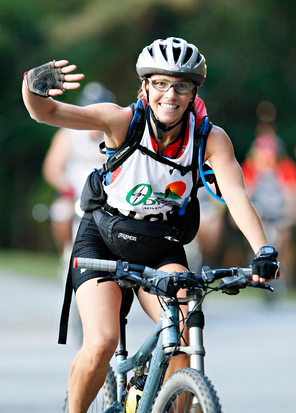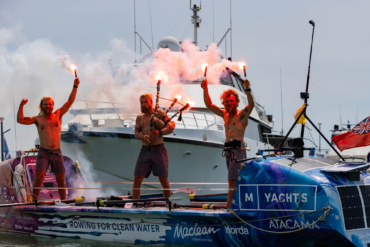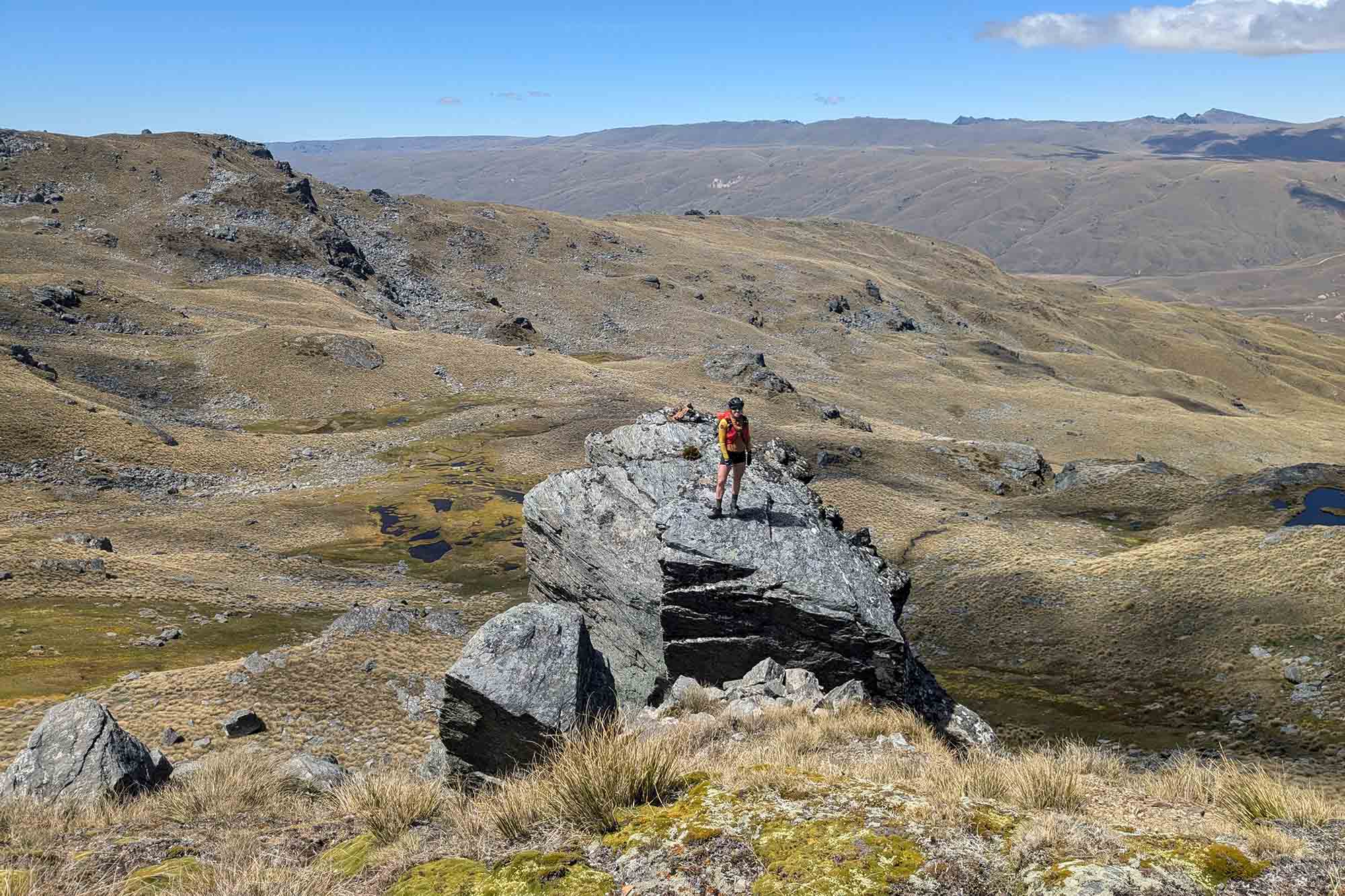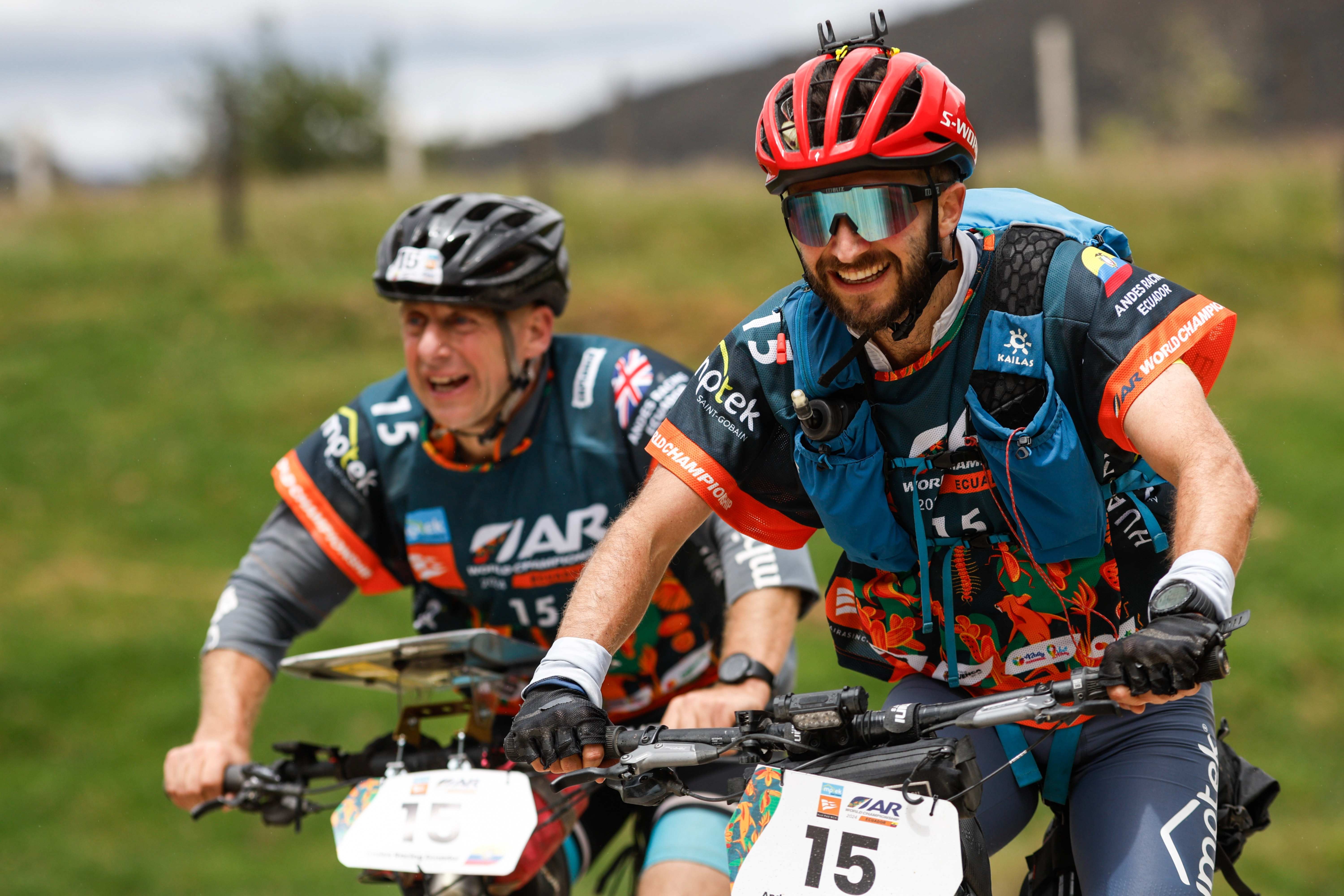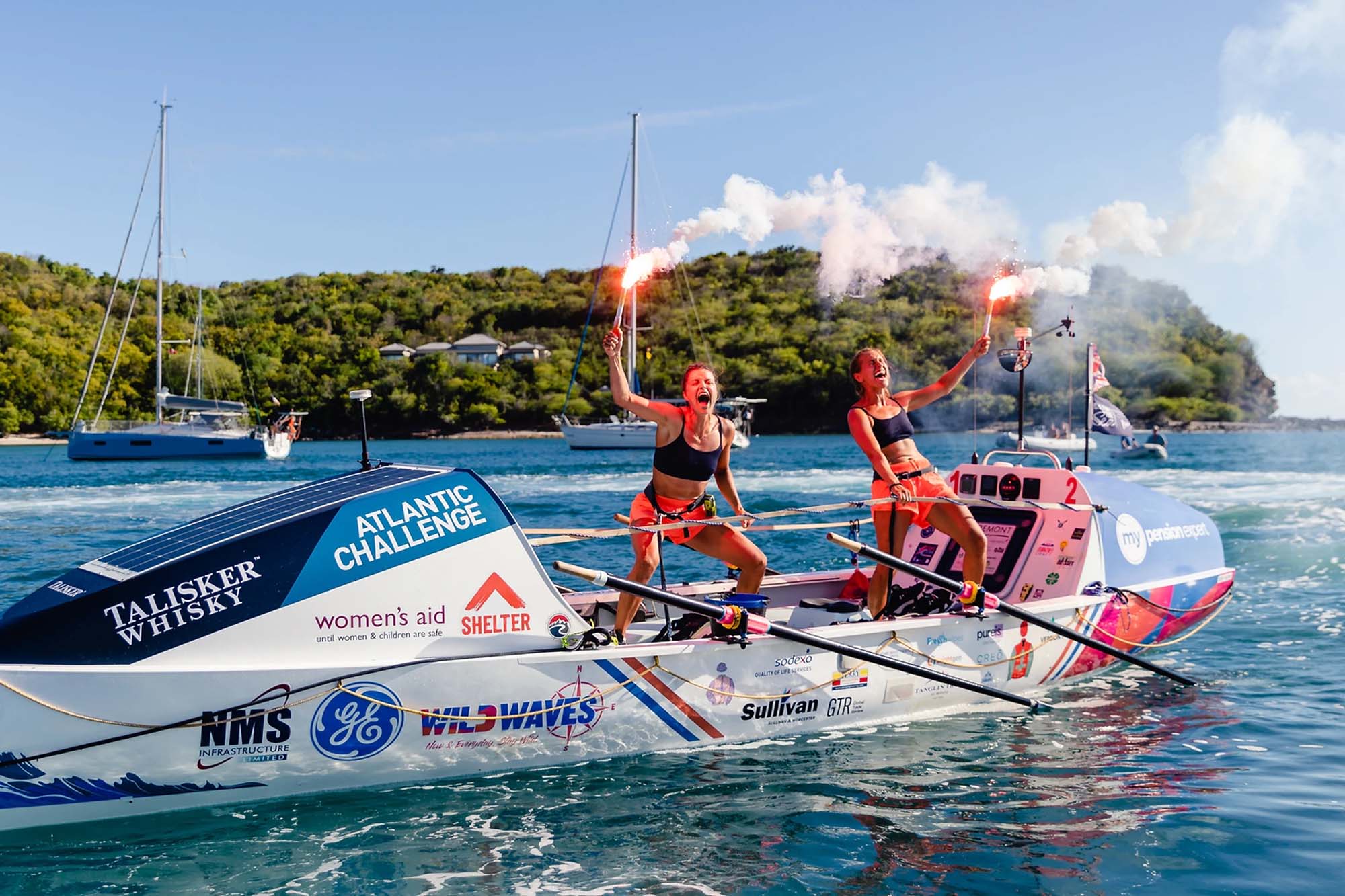One sport. Two national championship races. In the same state, in the same month. That is the strange and somewhat absurd situation U.S. adventure racers face this month when the sport’s two main overseeing entities, the United States Adventure Racing Association (USARA) and Checkpoint Tracker, will each host its own year-end “national championship” race in Kentucky.
First up, USARA hosts its National Championship Race starting this week, on October 6, in Cumberland Falls State Park, Kentucky. Two weeks later, a couple hours’ drive west in the same state, is the Adventure Racing Championship by Checkpoint Tracker. Both are 24-hour races, and both will likely feature the same disciplines, similar race distances, and — because of their geographic proximity — feature mirroring terrain and topography for teams battling for the “national champion” crown.
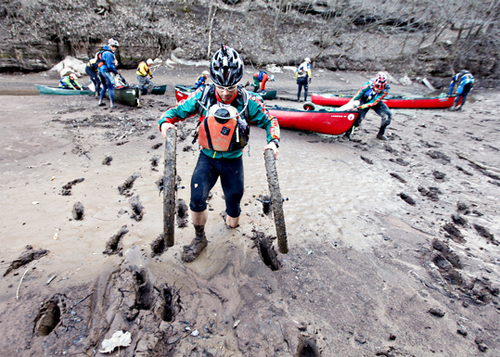
“Our team is currently signed up for both national championships,” said Justin Bakken, captain of Team WEDALI, the 2010 USARA national champs. A handful of top teams like WEDALI will do both races, including Team ImONPoint, the defending Checkpoint Tracker national champions. Most squads will pick between USARA and Checkpoint Tracker, not do both.
Confusion over “national championship” status is a new phenomenon. Until last year, when Checkpoint Tracker hosted its inaugural Adventure Racing Championship in Moab, Utah, the USARA had a monopoly on the championship event, which it has hosted for more than a decade. But Checkpoint Tracker, an organization that provides a widely-embraced national team ranking system, quickly gained a name for itself as it was affiliated with a nationwide series of events.
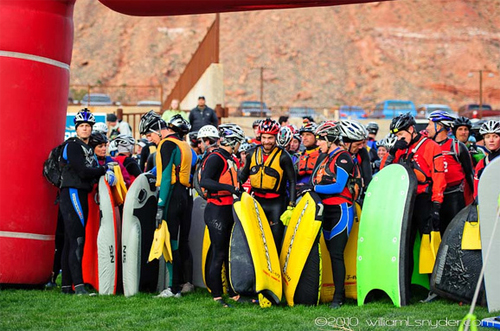
Paul Angell, president of Checkpoint Tracker, and USARA director Troy Farrar both maintain the dueling Kentucky races were a coincidence. Apparently, neither organization knew until it was too late. “It is a shame that both events are in October in the same state,” Farrar said.
Coincidence aside, the occurrence will serve as an interesting flashpoint for the adventure racing community. The two organizations have locked horns, and this month the adventure-racing public — by attendance to one of the Kentucky events or the other — will validate the legitimacy or relevance of each organization. So far, Checkpoint Tracker is ahead on that front with about 180 registered racers versus about 105 for USARA. (Teams must qualify in order to attend the USARA Adventure Race National Championship by placing in the top-three spots at a USARA race; Checkpoint Tracker’s race is open to all teams who have competed in a CPT series event.)
Beyond the championship races, USARA and CPTracker carry similar weight in the domestic adventure racing scene. Both provide ranking systems that award teams points during the season. Teams accumulate either USARA or CPTracker points while racing in events throughout the spring and summer before heading to the championship in the fall.
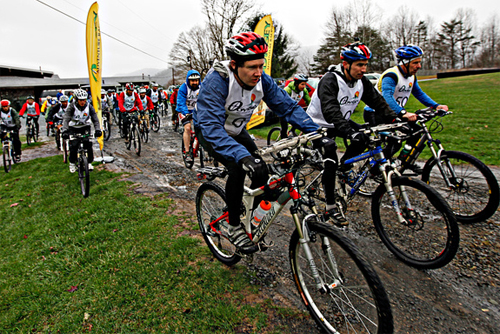
Some teams favor one race series over another, but most teams do not care — it comes down to what races are in your team’s region and which you want to do. For most racers, affiliation with USARA or CPTracker is secondary, though squads vying for national recognition may travel to earn USARA or CPTracker points during the regular season. “We could hardly find any USARA races to do in our region [the West] this year so we default to Checkpoint Tracker,” said Jason Magness of Team GearJunkie/YogaSlackers, a team sponsored by this website. This year, Team GearJunkie/YogaSlackers will compete in the Checkpoint Tracker national champs race only.
The dueling national championship events is the latest snag for the sport of AR, which has withered in some respects in recent years. Since its rise in visibility more than a decade ago, adventure racing has been the little outdoors sport that can’t gain a critical mass. The national championship races are healthily attended, but participation numbers are down in many regular season races. Entire AR series in states like Minnesota have been cancelled, and the big domestic races that used to warrant TV coverage and national attention, notably Primal Quest, are infrequent and skimmed back significantly from just five years ago.
On a cultural scale, the sport is all but invisible. Ask a member of the general public, even an outdoorsy person, what adventure racing is and you’ll most often get blank stares. Even mainstream outdoors publications largely ignore AR or get it wrong. Outside magazine’s October feature on “adventure racing,” written by Whitey Dreier, includes no wilderness events and no races in the Checkpoint Tracker or USARA series. Instead, Tough Mudder, Warrior Dash, and Muddy Buddy were highlighted in the article, essentially mis-categorizing the whole sport.
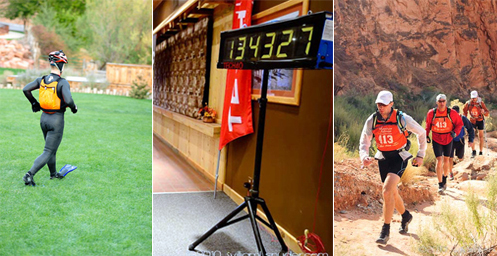
“Honestly, the sport is a complete mess in the United States right now,” said Jason Elsenraat, director of Bonk Hard Racing LLC and the race director of one of this year’s national championships. Elsenraat has directed more than 60 races in his career and is one of the most respected men in the business. He has directed USARA Adventure Race National Championships in the past, but this year he will run the show at CP Tracker’s championship event in the Land Between the Lakes wilderness in Kentucky.
Elsenraat agrees that the doubled-up national championship events confuses racers, not to mention the general public. But dysfunction extends more into the entire AR scene, he noted. “In order for AR to grow in the United States, everyone needs to be on the same plan to organize, regulate, promote and ultimately grow the sport,” Elsenraat said. “Rules at each event are completely different, distances and time frames can vary from one race to the next — one part of me says all of this is a huge disadvantage to the growth of the sport.”
Beyond the lack of congruency Elsenraat notes, quality is an issue in the sport as a whole. Rules can be confusing, vague and random from race to race. There are few standards in the sport and despite USARA’s claim to it there is no excepted governing body. Race directors often change rules, cut-off times, and other variables while the race is live, frustrating participants.
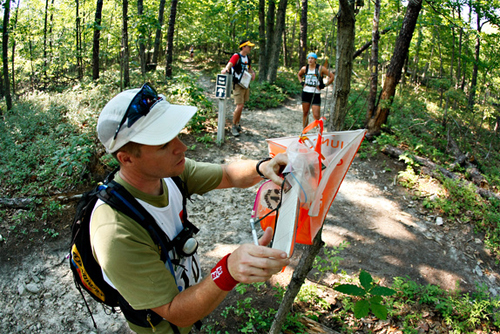
Basic logistics frequently fail, even at major races like this year’s Raid The North Extreme, an expedition race in British Columbia where teams waited for hours for their food or equipment to arrive at designated gear drops. Raid the North, a week-long event in July, was a low point for Magness in the sport. “We were dumbfounded by the mess of that race,” he said. (Read Magness’ report on the event here.)
Misplaced checkpoints are a problem at races across the country, from sprints to multi-day expeditions that cost thousands of dollars per team. Race directors from Georgia to British Columbia this season alone have been called out for misplacing checkpoints, a catastrophic whoops that can wreck a race. (On GearJunkie, last year we wrote on these issues extensively in an article, “An Open Letter To Adventure Race Directors,” which generated dozens of comments online from racers and readers on frustrations and ideas on how to improve the sport.)
Even national championship events suffer from poor course design and planning errors. One racer, who wanted to remain anonymous, rattled off a list of “offenses” at USARA championship events he has attended from 2004 onward, including mis-marked maps, mis-placed checkpoints, poor pre-race communication, and confusing rules that caused top teams to lose points. “I would say the issues were more the fault of the race directors [hired independently] than the governing body [USARA],” the racer said. “Even though the governing body is ultimately responsible for the race.”
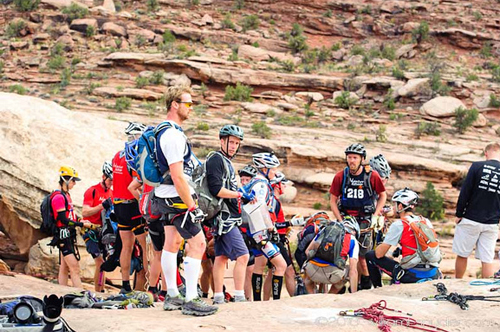
Last year, at the debut of Checkpoint Tracker’s champs race in Moab, Utah, a race organized by Gravity Play Sports, there were long “on the clock” lines and bottlenecks at ropes sections, frustrating many teams. Rules were not clear for one section of the race, causing teams to employ varying strategies to accomplish a trek. Some teams, including Team Osprey Packs and Team YogaSlackers, which finished the entire racecourse respectively in first and second place, received huge penalties that added hours to their “official time,” ranking the squads below teams that finished much later. Justin Bakken, who captained Team WEDALI at the Moab event, said the mess-ups yielded “an awkward awards ceremony and a lot of heated post-race debate.” (See the comments section on our article about the race last year.)
Will the “dueling Kentucky champs races” change things in the sport this month? Will past errors, notably at the championship events, be forgiven or have dedicated racers hit a limit to what they can take? Kyle Peter of Team Tecnu Extreme/StaphAseptic, currently the No.2 team in the nation as per Checkpoint Tracker’s rankings, said frustrations are boiling and that the limit is close to being reached. “The CP Tracker race had some major issues last year,” said Peter. “Things have got to go off smoothly [at this year’s champs race] or the nationals won’t have any top teams or maybe not even exist in 2012.”
—Stephen Regenold is founder and editor of www.gearjunkie.com and captain of Team GearJunkie/YogaSlackers, currently ranked fifth in the nation. Regenold has written on adventure racing and covered the sport as a freelance journalist for the New York Times, Outside magazine, and other publications since 2003.
